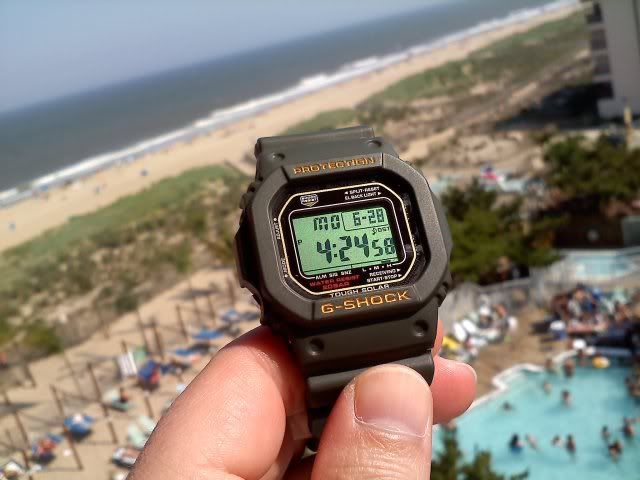Sure, no problem



I was actually wondering about the same (and commented about it on the video).
 They pump position data out to MS FlightSim, what a weird wedding.
They pump position data out to MS FlightSim, what a weird wedding.
eMGee wrote: I've noticed that, too. For what particular reason did they prefer or the necessity to use a Zip-drive, I wonder.
I suppose that removable media was desired to emulate the feeling of removable cartridges. And at the time the WBC-3000 was designed, the ZIP was reasonable in cost and size. Today a SD-card would probably be good enough.The WBC-3000 removable media disk, is a direct replacement for DEC and Pertec type 14 inch cartridge disk drives with fixed or removable storage capacity of 2 1/2 to 30MB. This product utilizes a Syquest EZ135 135MB removable cartridge disk drive or a removable hard disk drive canister.
mmm palletsStephenT wrote: Oh, if only you could see what we've got on our pallets.I'm not sure what terminal that is on top of the SGI but I'll check next time I'm in there.
 How long have you guys been around?
How long have you guys been around?


ozpass wrote: Sorry, for some reason I thought my location was listed under the avatar (getting confused with other forums) the Crimson is at my house in the UK - near Manchester.



PymbleSoftware wrote: I like your collection. I used to have a VT-131 and was offered a PDP 11/23 in the late 1980s (They used to be used to monitor the backup to the backup for the railway signal switches) but being young and transient I had no where to put it. For shame.I used to own a BeBox once too. I even wrote an article in Dr Dobbs and (phone) interviewed at B e Inc.














 <- MicroVAX 3500
<- MicroVAX 3500
 <- DECsystem 5500
<- DECsystem 5500
 <- MicroVAX 3300
<- MicroVAX 3300
















 <- MicroVAX 3500
<- MicroVAX 3500
 <- DECsystem 5500
<- DECsystem 5500
 <- MicroVAX 3300
<- MicroVAX 3300















 <- MicroVAX 3500
<- MicroVAX 3500
 <- DECsystem 5500
<- DECsystem 5500
 <- MicroVAX 3300
<- MicroVAX 3300
 Meanwhile, I'll play a bit with the Deskside.
Meanwhile, I'll play a bit with the Deskside.















 <- MicroVAX 3500
<- MicroVAX 3500
 <- DECsystem 5500
<- DECsystem 5500
 <- MicroVAX 3300
<- MicroVAX 3300
 I now hook up my laptop and connect with the correct baud rate and voila! L1!
I now hook up my laptop and connect with the correct baud rate and voila! L1!
Code: Select all
pontus@knd:~$ cu -s 38400 -l ttyUSB0
Connected.
ERROR: command not found.
001a01-L1>
001a01-L1>help
Commands are:
* autopower|apwr junkbus|jb|bedrock brick
partdb cpu nia|ni|ctc nib
iia|ii|cti iib config|cfg debug
display|dsp env fan help|hlp
history|hist l1dbg link log
ioport|ioprt istat l1 leds
margin|mgn network pimm port|prt
power|pwr reset|rst nmi softreset|softrst
select|sel serial eeprom uart
usb verbose router|rtr date
nvram security nextgen flash
reboot_l1 version|ver pbay test|tst
scan pci
enter 'hlp <cmd>' for more help on a single command.
001a01-L1>
 but don't worry, I'll be able to get you the ND-110 safely to you anyway
but don't worry, I'll be able to get you the ND-110 safely to you anyway

Code: Select all
001a01 ATTN: 2.5V high warning limit reached 2.769V.
Code: Select all
001a01 ATTN: FAN 5 warning limit reached @ 0 RPM.
001a01 ATTN: FAN 5 fault limit reached @ 0 RPM.
001a01 ATTN: brick auto power down in 30 seconds
Code: Select all
001a01 ATTN: 2.5V level stabilized @ 2.743V.
001a01 ATTN: 2.5V high warning limit reached 2.756V.
Code: Select all
001a01-L1>fan
fan(s) are on.
fan 0 EXHAUST rpm 1185 (142).
fan 1 HD rpm 2157 (156).
fan 2 PCI rpm 1573 (107).
fan 3 XIO 1 rpm 2274 (148).
fan 4 XIO 2 rpm 2157 (156).
fan 5 PS rpm 4400 (0).
Thank you! Your encouragement is much appreciated.recondas wrote: Outstanding!!
Very nicely done Pontus - Fuel owners worldwide you you a debt of gratitude.
Thank you. Regarding the fan, It's probably just a matter of taking the PSU apart and run an extra the FANM cable out from the fan to the mother board connector.ramq wrote: Nicely done Pontus!
This could very well be an option for fried PSU's, but it would be awesome if one could work out the fan issue altogether and get a (much) quieter Fuel PSU.
vt terminals is always good to stockramq wrote: Oh, about the VT320... I'll make sure to include a bunch of VT510/VT520's when you come collect the ES45's.
 Hmm, ES45 you say, Coincidentally I just bought a bigger car.
Hmm, ES45 you say, Coincidentally I just bought a bigger car.
Thanks, much obliged.jan-jaap wrote: Hi Pontus, nice hack!
Would be nice to know your L1 firmware version, with my blue' Fuel I could not upgrade the L1 because it failed to 'detect' the PSU after that.
Oh, and AFAIK, 2.5V is used for the (DDR1) RAM, and is derived from some other voltage (usually the 12V line I think) by a VRM on your mainboard.
Code: Select all
SGI SN1 L1 Controller
Firmware Image B: Rev. 1.12.6, Built 04/22/2002 08:13:40
Code: Select all
1 -- 1 | +3.3V
2 -- 2 | +3.3V
3 -- 4 | GND
4 -- | NC
5 -- 5 | GND
6 -- 6 | +5V
7 -- 8 | GND
8 -- 11 | PWR_OK
9 -- 7 | 5VSB
10 -- 21 | +12V
11 -- 22 | +12V
12 -- 14 | +3.3V
13 -- 13 | +3.3V
14 -- 20 | -12V
15 -- 15 | GND
16 -- 23 | PS_ON
17 -- 16 | GND
18 -- 9 | GND
19 -- 10 | GND
20 -- | NC
21 -- 17 | +5V
22 -- 18 | +5V
23 -- 19 | +5V
24 -- | NC
Code: Select all
1 -- 5 | +12V
2 -- 6 | +12V
3 -- 7 | +12V
4 -- | NC
5 -- 1 | GND
6 -- 2 | GND
7 -- 3 | GND
8 -- | NC

 Here's how fun I've had:
Here's how fun I've had:
jan-jaap wrote: Successfully upgraded the L1 on my Fuel to the last rev (1.48.1) using tjsgifan's recipe (thanks!). PSU still recognized
I'll stop hijacking your thread now
















 <- MicroVAX 3500
<- MicroVAX 3500
 <- DECsystem 5500
<- DECsystem 5500
 <- MicroVAX 3300
<- MicroVAX 3300














 <- MicroVAX 3500
<- MicroVAX 3500
 <- DECsystem 5500
<- DECsystem 5500
 <- MicroVAX 3300
<- MicroVAX 3300



kubatyszko wrote: While I was at it - I checked the signal on the FANC pin - and it gives me constant 3.3V - nothing changes while powering up, nor while running.
This could be power for some of the internal logic - doesn't seem to be going directly to the FAN.














 <- MicroVAX 3500
<- MicroVAX 3500
 <- DECsystem 5500
<- DECsystem 5500
 <- MicroVAX 3300
<- MicroVAX 3300